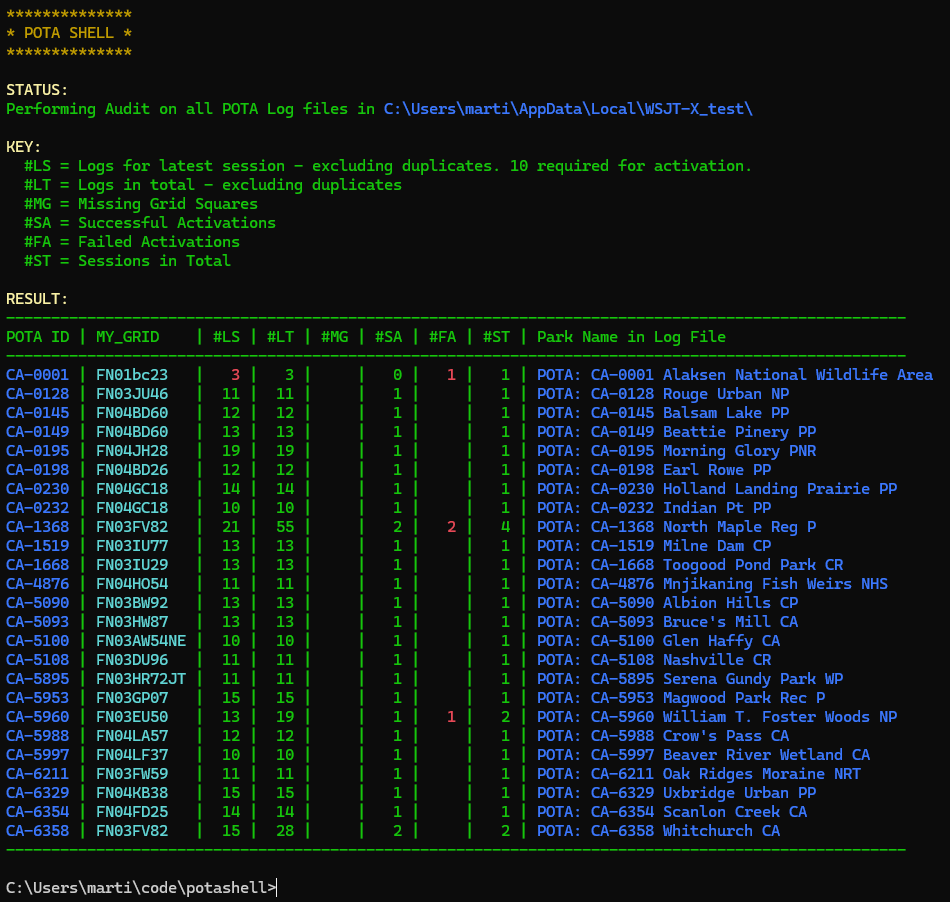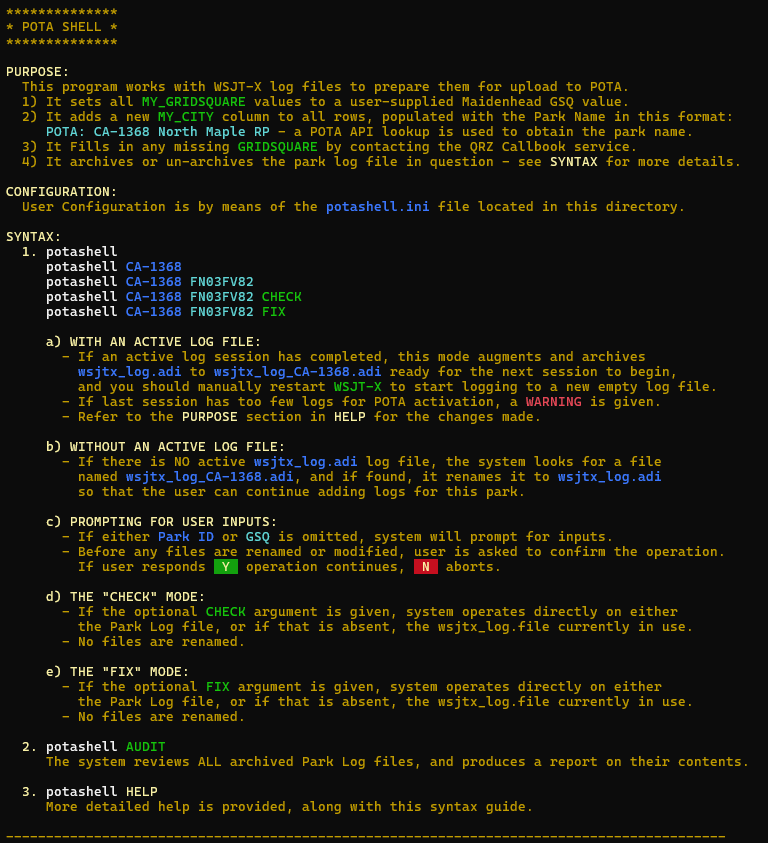PURPOSE:
Potashell is tool for Radio Amateurs making
FT4 or FT8 contacts using WSJT-X while operating from
recognised locations in the "Parks On The Air" (POTA) Program.
The script is used to manage and augment .adi files created by WSJT-X and operates directly
on adi log files located within WSJT-X data folder.
When using this system, each park's logs will be archived at the end of the session to a
specific park log file - eg wsjtx_log_CA-1368.adi. This allows you to maintain logbooks
specific to each park that you visit.
The values for MY_GRIDSQUARE within a log session file are all set to a user-supplied value,
and a new MY_CITY column is added, with the value being set to a value obtained by
automatically looking up the park details through the POTA API, in the following format:
POTA: CA-1368 North Maple RP
Please note that certain name substitutions are made to keep the name length manageable.
Users with an active QRZ.com XML Subscriber account (see
https://shop.qrz.com/collections/subscriptions) can provide their XML API key and credentials
to enable the system automatically lookup any missing gridsquares for contacted stations, and
to have their logs automatically uploaded to their QRZ.com logbook at the end of each session.
REQUIREMENTS
- You need PHP 5.6 or newer installed and available to run at the command prompt:
Typephp -vat the command prompt to verify your installed PHP version.
This program has been tested on every major release of PHP from 5.6 to 8.4. - You should have WSJT-X installed, and be able to provide the path to the stored data files.
- You will need an active QRZ.com XML Subscriber's account for the automatic lookup of missing gridsquares to work, and for the system to automatically upload your logs to your QRZ.com logbook at the end of each session.
CONFIGURATION:
User Configuration is by means of the potashell.ini file located in this folder.
OPERATING MODES:
-
BEGINNING AN ACTIVATION
Potashell can be used at the start of a session to determine if you already have a log for park in question, and if so, that park's logfile - e.g.wsjtx_log_CA-1368.adiwill be renamed towsjtx_log.adi, allowing WSJT-X to continue adding logs to that specific log file, and to correctly report on new continents, countries, gridsquares and calls for each location at which you operate. -
DURING AN ACTIVATION
- The
checkoption can be used with Potashell at any time during an activation to determine if you have duplicated contacts with a single callsign within a session, and to report on how many more unique contacts are needed for a successful activation - POTA requires 10 completed QSOs during a single operating session to successfully 'Activate' the park. - The
fixoption can also be used at any time to lookup any missing gridsquares and write in your full gridsquare reference for the park you are at, together with the park name inMY_GRIDSQUARE
- The
-
AT THE END OF AN ACTIVATION ATTEMPT
Run the potashell script with the park identifier and accurate gridsquare reference when there is awsjtx_log.adifile present in the WSJT-X data folder to end the session.- The
wsjtx_log.adifile is renamed to it's unique park specific name, e.g.wsjtx_log_CA-1368.adi - Any missing gridsquares for worked stations are obtained and inserted
- The values for
MY_CITYandMY_GRIDSQUAREare filled in from the supplied user input and a POTA API lookup - The newly added logs for the current session are uploaded to QRZ.com (previously existing logs in the same file are skipped)
- With the
wsjtx_log.adifile now renamed and unavailable to WSJT-X, that program should be restarted when a new park activation attempt begins, so that a new log can be created or an old log file renamed to place it back in scope for log entry to occur.
- The
-
AUDIT MODE
One of the cooler features is a built-in audit mode. This will produce an output like this:


